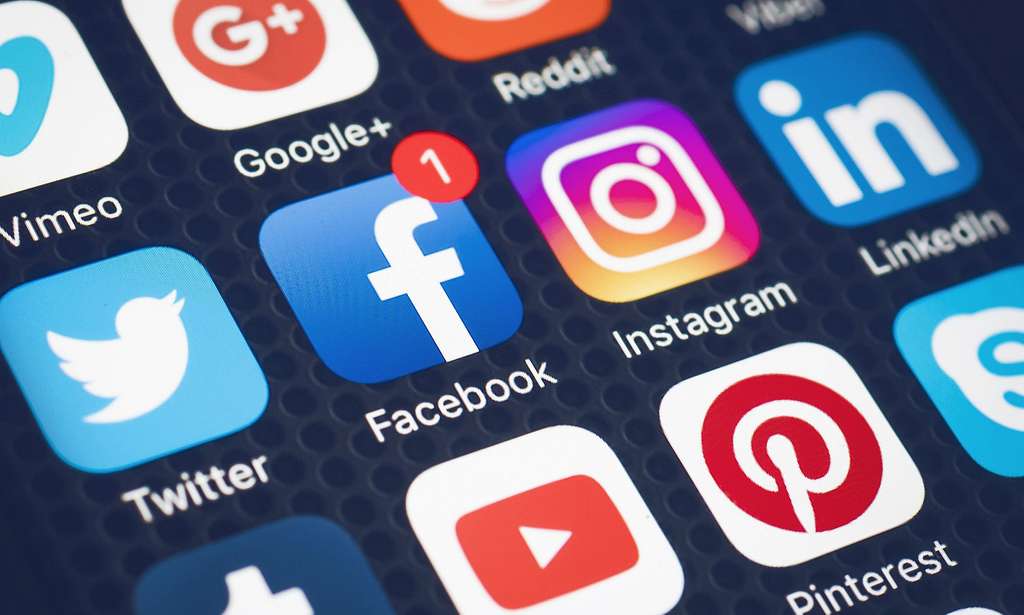Indian Politics and Social Media

A wave of "mediatization" has swept across Indian politics with the advent and widespread penetration of social media, increasing the power of the media to determine political agendas. This metamorphosis has transformed elections into celebrity image competitions. Public opinion and voting patterns have been greatly influenced by media exposure as politics and the media become more and more entwined. This development emphasizes the necessity of stringent laws and policies from the government.
How Does Indian Politics Gain from Social Media Use?
Raising Public Awareness: In the past, compared to the present, there was a far lesser degree of public awareness regarding governmental policy. Government outreach has greatly expanded because to the efficient use of social media, with numerous campaigns raising public awareness.
Increasing Democratic Spaces: Thanks in part to algorithms, influencers who have opinions that diverge from the mainstream have gained traction quickly. One characteristic of the algorithms employed by Facebook and YouTube is that content with a rapid increase in popularity will be promoted to the entire user population. For instance, the YouTube video "Is India Becomeing a DICTATORSHIP?" by Dhruv Rathee has already received 25 million views. Diversity of thought and vigorous debate of political positions are essential to a democracy. These areas are being forced open, which is a sign of the places where democracy is being reclaimed in India.
Better Analytical System: Social media makes it possible to collect and analyze data more quickly and affordably while requiring less human labor than traditional ways of determining public opinion. Campaign committees may now better understand voters and customize their policies to suit their demands thanks to the use of data analytics, which has become the backbone of election campaigns. And as of right now, a tweet survey has taken the role of the pre-election survey for those interested in reading public sentiment.
Resolving Issues: Social media facilitates people's ability to remain informed about forthcoming events, party agendas, and election schedules. Assign the task of managing social media to a tech-savvy applicant who will use it to connect with people and learn about their issues.
Ensuring In a Democratic Society: Free and Fair Elections
Manipulative Content: Free and fair elections are essential to democracy, and voters must be provided with all the information they need to make educated decisions. Nonetheless, during the current elections, there has been serious worry over the increase in the dissemination of false information or fake news.
Centralization inside political parties: In the past, voters were connected to political ideologies through the presentation of political narratives by party workers and political intermediaries, which led to the generation of policy demands from below. The importance of party workers and middlemen is decreasing due to social media. Because the leader can directly construct narratives, this allows for more centralization among political parties.
Deception and Freedom of expression: The ability to lie is not conferred by the right to freedom of expression. Freedom of speech is meant to protect variety of view and the right to express oneself reasonably, even while it advocates loose regulations on political advertising. When lies, trickery, and betrayal are employed to sway voters' decisions, they are not protected speech under the First Amendment. Content that has been altered violates the rights to free speech.
Political Polarization: Social media campaigns have the potential to exacerbate social and religious tensions throughout the nation, deepening divides and conflicts. Social media is frequently criticized for creating "echo chambers," where users are only exposed to points of view that align with their own.
Propaganda Setting: Over the last two years, political parties have reportedly spent almost $800 million (about Rs. 5,900 crore) on election advertisements, according to the Google Transparency Report. Micro-targeting allows dishonest tactics to spread harmful discourse with little repercussion.
Suggestions for Handling the Political Effect of Social Media
Digital Media Literacy: It is imperative to support programs that advance digital media literacy and education. The people will be able to more critically analyze and comprehend the material they come across online thanks to these programs.
Collaborations between social media sites and fact-checking groups: Examples of these kinds of partnerships include Facebook's and The Journal's. ie to spot false information, which is essential in the fight against disinformation.
Data Protection regulations: In order to secure personal information, data processors must implement and enforce data protection regulations that mandate that data subjects provide consent before processing their data.
Regulation of Political Advertising: To preserve parity in regulatory norms, the Election Commission of India (ECI) must make sure that political advertising on social media is subject to the same strict scrutiny as it is on traditional media.
Strict Enforcement of Conduct Codes: To guarantee compliance, the ECI should impose strict enforcement of the model code of conduct and step up monitoring of political parties' online activity.
In summary
The ECI's attempts to address problems pertaining to digital media indicate that social media companies' self-regulation is insufficient. The absence of concrete rules addressing emerging issues such as paid news, false news, and propaganda makes it difficult for the ECI to enforce its power. Therefore, to successfully manage the influence of digital media on elections, more stringent regulations and specialized legislation are required. It is imperative that free and fair elections be held nationwide, free from outside influence and conducted in accordance with the preferences and choices of the electorate.
